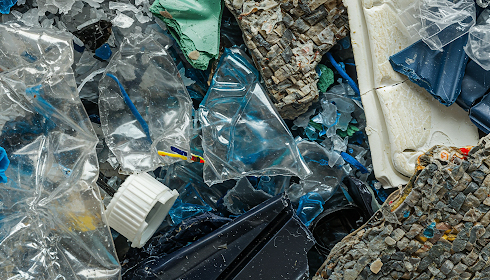
India’s Premier Plastic & Foam Recycling Shows Highlight Urgent Sustainability Goals in Healthcare and Beyond
In a nation facing an escalating waste crisis and increasing health issues associated with environmental decline, the first-ever Plastic Recycling Show India (PRSI) 2024 and UTECH India – Sustainable Polyurethane and Foam Expo (ISPUF) 2024 provided relevant and practical solutions. Taking place in December 2024, these dual expos, orchestrated by Crain Communications and Media Fusion, drew over 8,000 attendees and garnered international focus on the expanding initiative for sustainable materials and accountable waste management.
More than 120 exhibitors presented state-of-the-art technologies in plastic recycling, alongside 50 exhibitors from the polyurethane and foam industries who highlighted advancements in mattress manufacturing, sustainable PU applications, and innovative foam production techniques. The impressive turnout of more than 6,000 participants at PRSI and 2,700 at ISPUF highlighted the expos as significant venues for collaboration, knowledge exchange, and proactive engagement.
This movement carries significant implications from a healthcare standpoint. Medical waste, which encompasses single-use plastics from syringes, gloves, and packaging, plays a substantial role in environmental pollution. According to the latest figures from the Central Pollution Control Board (CPCB), India produces more than 101 metric tonnes of biomedical waste daily, a significant portion of which consists of plastic. Inadequate waste management practices can result in significant air and water contamination, thereby heightening the likelihood of respiratory diseases, cancer, and hormonal imbalances.
The discussions at PRSI and ISPUF focused on critical topics such as Extended Producer Responsibility (EPR), waste segregation, and circular economy models, highlighting the persistent challenge of healthcare waste management. Discussions delved into the potential advantages for hospitals and diagnostic laboratories through advancements in automated waste sorting and intelligent recycling solutions.
Notable companies such as Ganesha Ecosphere Ltd. and Ishitva Robotic Systems showcased effective models for the collection, sorting, and repurposing of plastic waste, which encompasses medical-grade plastics. These developments have the potential to alleviate pressure on landfills, enhance sanitation, and lower expenses for healthcare facilities that frequently rely on external waste management services.
“PRSI & UTECH ISPUF 2024 have underscored the essential importance of strategic initiatives in fostering sustainability and innovation,” stated Mr. Taher Patrawala, Managing Director, Media Fusion. “The gathering brought together influential leaders and decision-makers, creating an engaging environment for joint initiatives aimed at fostering a circular economy.”
In a similar vein, ISPUF’s discussions on foam recycling and the production of sustainable mattresses highlighted the critical issue of indoor air quality, which poses significant health concerns. Traditional foams frequently release volatile organic compounds (VOCs), which have the potential to provoke asthma and skin allergies. Innovative foam technologies presented by brands such as Duroflex and Libra Mattresses offer promising, safer options for various environments, including homes, healthcare facilities, and care homes.
Mr Matthew Barber, Global Events Director at Crain Communications, remarked, “The remarkable success of PRSI & UTECH ISPUF 2024 highlights the nation's increasing dedication to circular economy principles and international cooperation.”
The backing from prominent industry leaders and organisations, including the Association of PET Recyclers, Bharat, and the Indian Plastics Institute, significantly enhanced the influence of both expos.
The ramifications extend well past mere industry figures. A 2023 WHO report indicates that more than 13 million deaths each year are attributed to preventable environmental factors, with a significant number associated with inadequate waste management and toxic exposure. In India, the existing strain on healthcare infrastructure makes it imperative to tackle the connection between environmental factors and health. Such an action is not merely a choice; it is essential.
Although business innovation and sustainability objectives are frequently discussed in isolation, PRSI and ISPUF 2024 demonstrate the profound connections between healthcare, the environment, and industry. Minimising plastic waste and opting for safer materials can alleviate pressure on public health systems, enhance living conditions, and foster safer environments—particularly for at-risk communities. In 2025, future editions must prioritise practical, scalable solutions that connect environmental policy with human health.